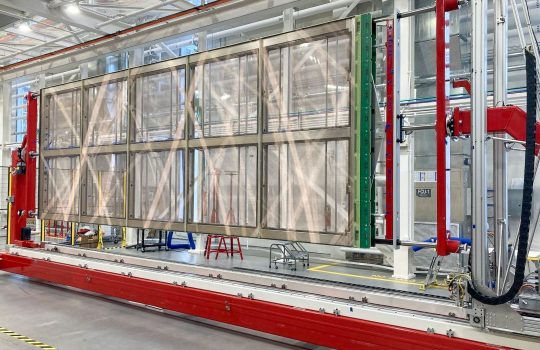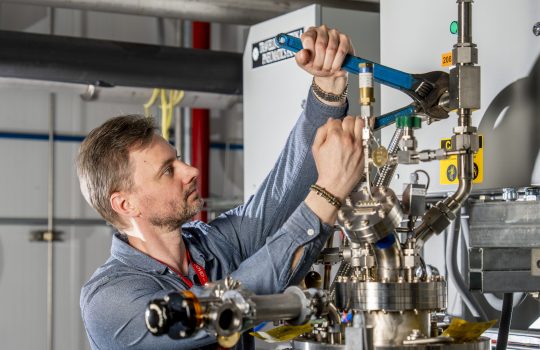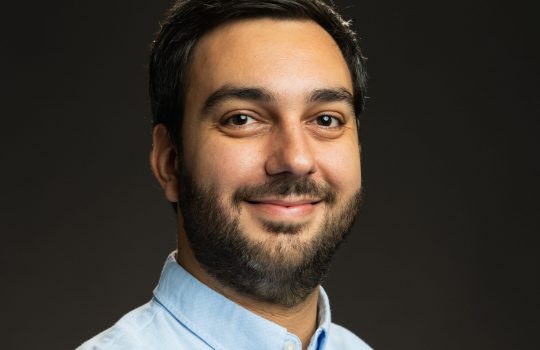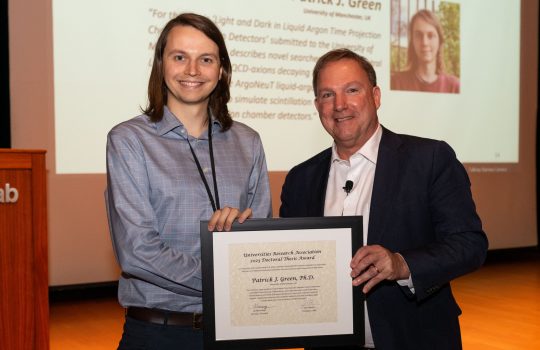Precision and ingenuity drive construction of DUNE detector components
Particle physics experiments use detectors that are intricate, sophisticated devices for learning about the origins and composition of the universe. The Deep Underground Neutrino Experiment is designed to tackle one of physics’ biggest mysteries — matter-antimatter asymmetry in the universe — by studying neutrinos. Production of Anode Plane Assemblies, detector components that will allow DUNE to achieve exquisite measurement precision, requires skilled technicians, a cleverly designed machine and an incredible attention to detail.





